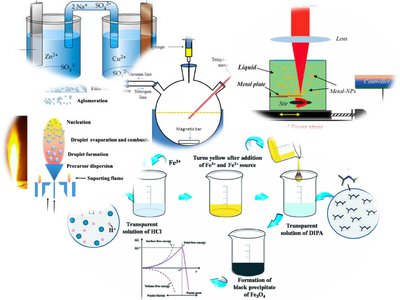Ett fundamentalt forskningområde inom nanoteknik omfattar tillförlitliga metoder för syntes/tillverkning av väldefinerade nanostrukturer/nanopartiklar, förändringen av och funktionaliteten hos dessa samt organiserandet av dem i större hierarkiska och funktionella strukturer.
Syftet med denna kurs är att introducera grunderna för termodynamik och kinetik i nanotillverkningsprocesser i lösningsfas. Definitioner och beräkningar med entalpi (H), entropi (S) och Gibbs fria energi (G) diskuteras och deras roller vid reaktioner undersöks med exempel. Grundläggande kemiska beräkningar för processer för lösning och utfällning undersöks med avseende på lösningsjämvikt. Elektrokemiska processer för substratbehandling, även kända som redoxreaktioner, introduceras tillsammans de styrande principerna. Icke-elektriska, elektrokemiska och elektroforetiska processer diskuteras. Exempel på kontrol och användning av elektrokemiska processer vid riktad, eller selektiv, etsning eller deponering presenteras. Några vanliga processer för renrumshanterning av substrat diskuteras med betoning på typen av risker vid användning av kemikalierna.
